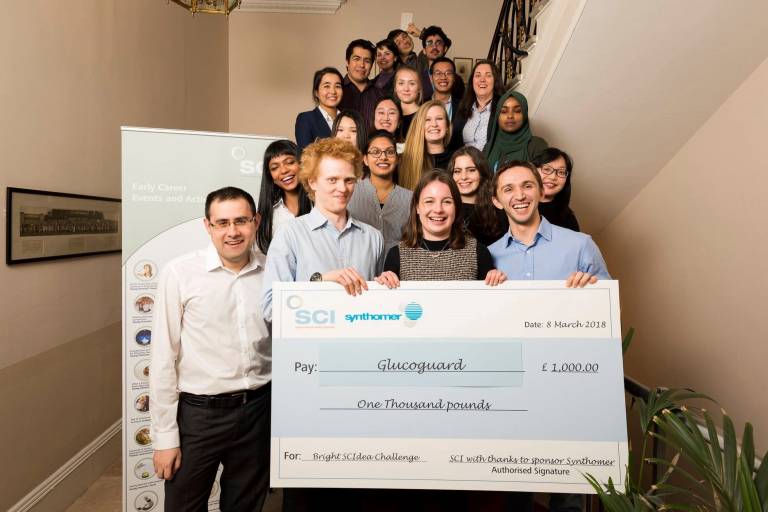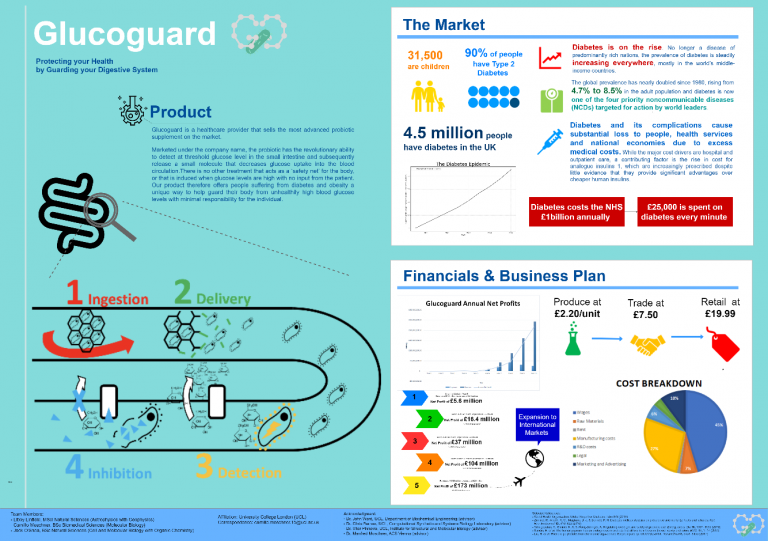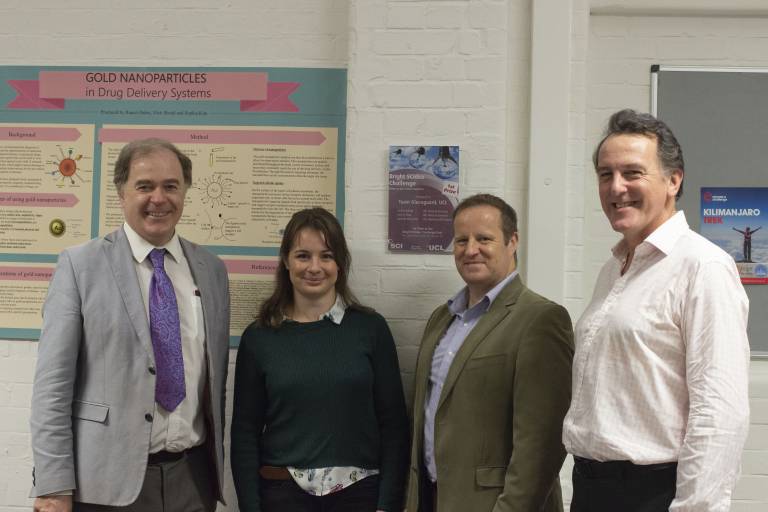UCL Natural Sciences students win the Bright SCIdea Challenge
16 October 2018
The 2018 Bright SCIdea Challenge was awarded to three UCL undergraduate students for their product Glucoguard, a probiotic diabetes drug.

Glucoguard is a probiotic bacterium that treats diabetes by releasing a drug called an alpha-glucosidase inhibitor, which prevent excess glucose uptake into the blood from the small intestine. It is a cheap and effective product that mitigates post-meal blood-sugar spikes. This reduces the risk of future health complications and development of insulin resistance in type 2 diabetics, pre-diabetics, and obese and elderly people. The overall product is a probiotic drink that would be taken by patients every 3 months and act as a safety net for the body, working in the background to prevent blood sugar spikes.

The Glucoguard team consisted of three 3rd year UCL undergraduate students from a range of scientific disciplines, including Libby Linfield (Natural Sciences, Astrophysics and Geophysics), Camillo Moschner (Biomedical Sciences, Molecular Biology) and Jack O’Shea (Natural Sciences, Cell Biology and Organic Chemistry). They formed Glucoguard as a team of close friends, each with different experience and areas of expertise - from pharmaceutical manufacturing, biological pathways and probiotics to business case production.
The Bright SCIdea Challenge offers undergraduate students the opportunity to create a product from core scientific principles and plan its development right through from lab to market. The process enables them to gain further skills in business case production, understanding their target market and make a product financially viable. Developing their idea in depth, enables them to learn how to overcome problems as they would happen for a start-up and learn first-hand how a business comes to life.
From August 2018, Jack will be starting his PhD at Edinburgh University studying how unnatural amino acids can be used to make photo-activable proteins in C. elegans via functional groups capable of exotic chemical reactions not possible under normal circumstances. Camillo has recently got accepted for a BBSRC funded PhD in Industrial Biotechnology and Bioenergy at the University of Cambridge, starting in September 2018. Libby has an internship for the summer of 2018 at Airbus in Earth Observation and Remote Sensing, before going back to UCL to complete her masters in Astrophysics, focussing on the application of Machine Learning in Remote Sensing.
“Taking part in this competition has definitely changed the way I think about scientific research. I now believe that any scientist can benefit to knowing how businesses can be created from ideas, and if more scientists had this knowledge, more innovative start-ups would get off the ground…and make the world a better place,” added Jack O’Shea (3rd year Natural Sciences student).
On 16th October a commemorative plaque celebrating their success was unveiled in the natural sciences common room. Professor Ivan Parkin, Dean of UCL Mathematical & Physical Sciences and Ian Bradshaw from SCI both spoke on the impressive achievement from the team and the importance of interdisciplinary.

Links
Image
Bright SCIdea Winners
 Close
Close

